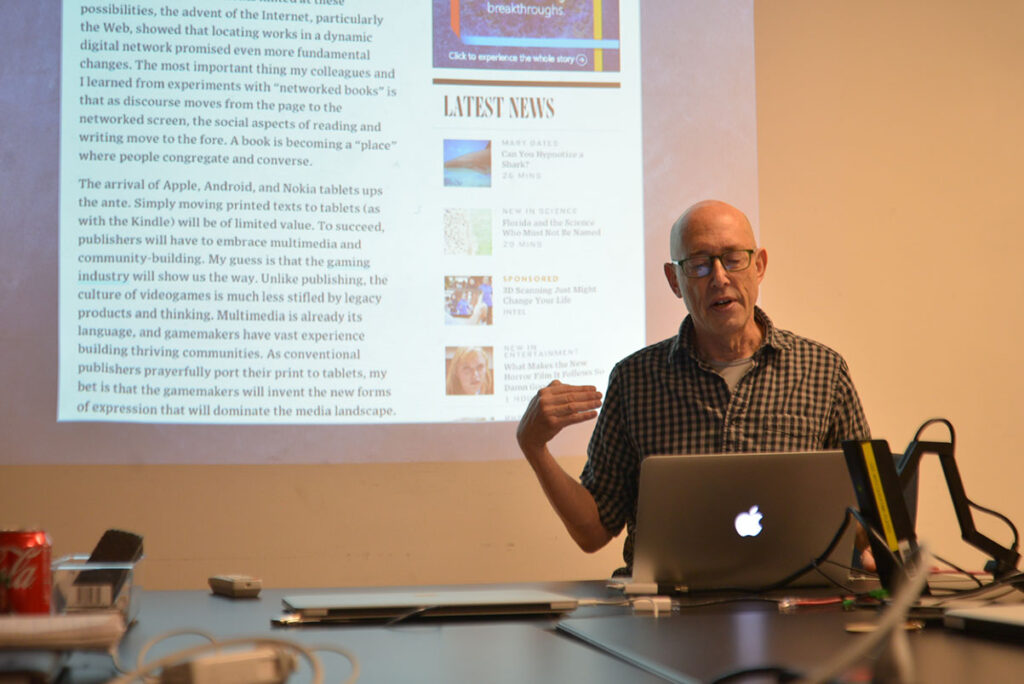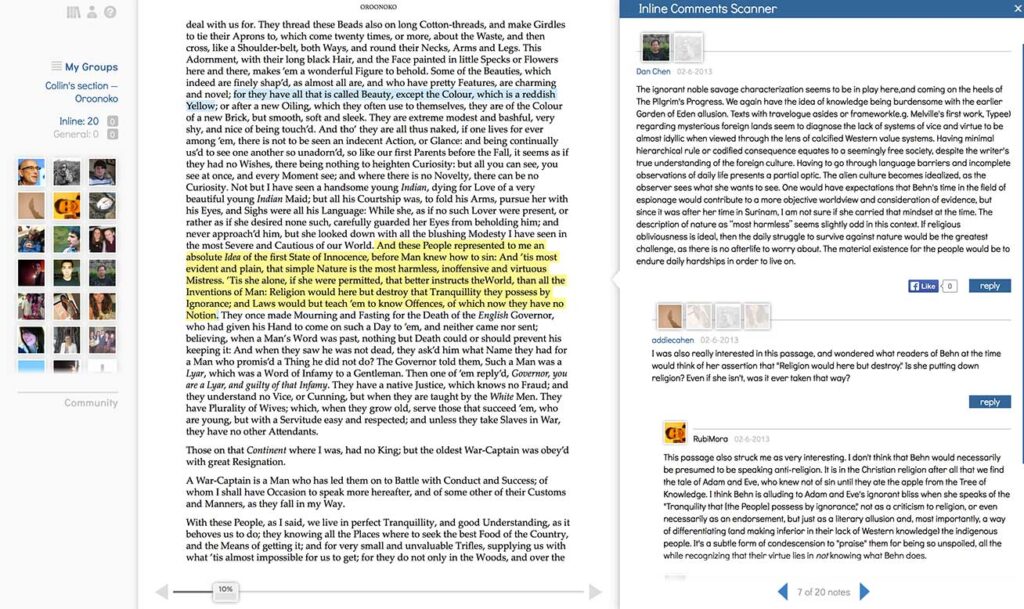
Robert Stein is one of the true pioneers of multimedia: computer hybrids of text, video, sound, graphics, and interactivity, which is the face of the Internet as we know it. He spoke to us about the future of publishing, which will be video games–not books.
Bob founded The Criterion Collection in 1984, which put the most important films on Laserdisc (and later, DVD) with director commentary tracks, bonus features, and my personal favourite: letterboxing for 4:3 screens for cinema purists, the bane of grandparents everywhere. A year later, he founded The Voyager Company, the first commercial multimedia CD-ROM publisher. He is currently the co-director of the Institute for the Future of the Book.
Wikis, collaboratively designed websites, have a growing role to play in information freedom and accountability. Where we used to just accept “the prepackaged truth” laid down in an encyclopedia, now we can have a debate about how information is developed. Bob used the very current example of Wikipedia revisions of hot-button police conflicts being traced back to a single police department, resulting in community outcry, corrections, and heightened vigilance.
These dynamics occur in parallel in surging online gaming communities, but as Clay Shirky (cognitive surplus) and Jane McGonigal (“Gaming can make a better world”) would suggest, we are still waking up from a fog, only beginning to understand all the problems we can use our wonderful new found power to solve.
Working with computer scientist Alan Kay at the Atari Research Group in 1982, they developed the equivalent of the present-day tablet for information retrieval, but not the collaborative and social production we are seeing in games like World of Warcraft and Minecraft: “We missed the people aspect of the Internet in 1982.”
“The more you can walk up the mountain and see what came before us, the better prepared you are to see the future.” -Robert Stein
In retrospect, Internet inventors and Douglas Engelbert were one hundred percent focused on enabling borderless collaboration and teamwork through computing. Bob recommends watching Engelbert’s The Mother of All Demos from 1968 (below), 13 other MIT demos, studying The New Media Reader, and everything McLuhan.
“The people who invented our current world read McLuhan… Marx and Mao readers didn’t have as much luck.” Bob encourages special attention be paid to Marshall McLuhan’s 1974 talk (above), about how the instant electric environment causes and end to secrecy and means nobody has a monopoly on knowledge anymore (“in learning, education, or power.”)
Bob poses an open challenge to find a publishing executive that sees a future for their industry. Most are 55-60-year-old men, ready to retire. He uses the example of the publishing industry “getting into VR” …to build a virtual bookstore.
SocialBook is a platform he has been developing which allows digital books to be annotated, starting conversations about the content, but Bob is unable to get the publishing industry excited with the functional prototype. I see promise in the idea, but commenting already works better in Google Docs and I would be surprised if Google doesn’t inevitably build this into Google Play Books.

The publishing industry is mired in tradition, but gaming is not. As gamers emerge into mainstream culture, we will see more collaborative story-making. With this will come more viewpoints, and point of view is 80 IQ points. Our environment limits conversation, so the more ways to get people talking the better.
http://www.futureofthebook.org/
Lee Saynor is a Digital Futures undergrad at OCAD University. The keystone of Atelier II – Collaboration was a week-long field trip in New York City, where the class visited some of the most important people and organizations in creative technology. Thank You Bob!
Leave a Reply